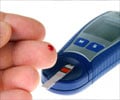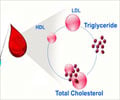Lipoproteins - Food Guide
It becomes important for the readers to know which foods are helpful in lowering cholesterol.
Fibre-rich foods may help to lower your blood cholesterol level. Soluble fibre may help lower cholesterol levels by sweeping cholesterol out of the body before it gets into the bloodstream. Foods rich in soluble fibre include oat bran, dried beans and peas, some fruits, and psyllium seeds (Isabgol). Beta-glucan, a soluble fibre found in many whole grains, comes exclusively from barley and not supplements. The diet with the most beta-glucan uses barley flakes, barley flour, and pearled barley instead of rice and wheat. Brown rice bran and oat bran are particularly useful. Soluble fibre is found in oats, legumes, and many fruits and vegetables such as apples, pears, oranges, carrots.
Choose the whole fruit with skin included, instead of the juice. Juice is the fruit with all the fibre removed. Eat legumes at least three times a week. Try bean soup, cold bean salad, humus sandwich, black bean dip, toasted soy beans for snacking. Soy protein is especially effective, so be sure to include plenty. Even soy milk, tofu and textured soy protein are good.
Eating grapes may help reduce LDL cholesterol levels, due in part to the flavonoids content of their skins. Orange juice, too, is high in flavonoids, and recent studies suggest that consuming approximately three glasses of orange juice a day may increase your HDL (the "good" cholesterol) levels.
Polyunsaturated and monounsaturated fats can help lower cholesterol, so it's sensible to swap foods high in saturates for more foods rich in unsaturates. Good sources of polyunsaturates include pure vegetable oils and spreads such as sunflower, corn, rapeseed and soya oils and margarines and some vegetables, while good sources of monounsaturated oils include olive oil, avocados, nuts and seeds.
Soy products are also linked to reduced cholesterol because of their isoflavones content. The FDA recently approved a health claim label for soy products containing soy protein, which states that daily consumption of as little as 25 grams of soy protein per day has been shown to lower cholesterol in people who have high cholesterol levels.
Another food in the arsenal against cholesterol is garlic. Cooked or raw garlic both contain compounds that help lower your liver's production of cholesterol. Studies show that individuals who eat large amounts of both garlic and onions have lower cholesterol levels. Chilli peppers, shiitake mushrooms, and artichokes have also been shown to help lower cholesterol levels.
Eat plenty of foods that contain the natural antioxidants - vitamins A and C. Vitamin C-rich foods include: sweet red peppers, cantaloupe, sweet green peppers, papaya, oranges, grapefruit juice, broccoli, Brussels sprouts, and strawberries. Vitamin E-rich foods include: sunflower seeds, walnuts, almonds, peanuts, wheat germ, soybeans, wheat germ oil, and soybean oil. Foods high in omega-3 fatty acids, such as flaxseed oil may protect against high cholesterol. Foods containing vitamins C and E, beta-carotene, pantethine (active form of vitamin B5-pantothenic acid), chromium, and copper may have cholesterol-lowering properties. Foods rich in Lycopene may be useful in moderating cholesterol levels.
HDL deserves to be called Good Cholesterol and another term that could describe them could be “Heart savers”! So hail HDL!!!













